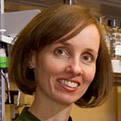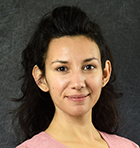
Science, Math, and Research Training (SMART)
SMART (Science Math and Research Training) is a year-long academic course, which uses interdisciplinary approaches to tackle big problems such as infectious disease and antibiotic resistance. The course is taught by faculty from biology, chemistry, math and integrates approaches from these disciplines. We value inclusion and recognize that diverse perspectives are needed to solve the big problems in science and medicine. This program, with its emphasis on providing authentic research experiences will help you discover the many ways that a degree in science or math will set you on the path to future discoveries and exciting careers. All students interested in science, math and related areas are welcome.
-
Coursework Overview
The coursework for this Endeavor community involves taking 2.25 units in the fall semester and a 2.25 units course in the spring semester.
Fall 2025 Semester
Spring 2026 Semester
BIOL 192: Science Math and Research Training I with Lab (1 unit)
CHEM 192: Science Math and Research Training II with Lab (1 unit)
MATH 211: Calculus I (1 unit)*
MATH 212: Calculus II (1 unit)*
IDST 184 (.25 unit): SMART Workshop I
IDST 185 (.25 unit): SMART Workshop II
*If you have Advanced Placement (AP) credit in Calculus, be sure to read the Incoming Advanced Placement (AP) Credit Information
BIOL 192 satisfies the natural science inquiry (AINS), as well as required for majors/minors in biology as well as biochemistry and molecular biology.
MATH 211 satisifies the symbolic reasoning inquiry (AISR), as well as required for many majors
CHEM 192 is required for majors/minors in chemistry as well as biochemistry and molecular biology.
IDST 184 & 185 are the weekly recitation periods required for all SMART students. Each of these recitation periods will consist of problem solving and skill development sessions.
-
Specific Course Information
BIOL 192: Science Math and Research Training I with Lab
CHEM 192: Science Math and Research Training II with LabThis year-long course provides an interdisciplinary, integrated introduction to biology and chemistry, with an accompanying integrated lab. Based on the material in the first course of the major in each of these disciplines, this course will focus on current scientific problems facing today’s world such as HIV/AIDS or antibiotic resistance. The course is team taught by two faculty members, one from each discipline. Teaching will be integrated so that links between concepts are readily apparent and students are stimulated to think beyond traditional science methodology. The laboratory will be comprised of hands-on and investigation based experiences using both experimental and computer simulation approaches. The SMART course is designed for students considering a major in either biology or chemistry and also meets requirements for students who go on to study medicine or other health sciences fields. To be taken in consecutive semesters in the first year and with an accompanying year-long calculus course. Completion of the full year of SMART (CHEM 192) will substitute for CHEM141 and BIOL 199. Three lecture and Three laboratory hours per week.
MATH 211: Calculus I
Calculus is the mathematical language that allows humans to understand and describe change. To prepare for the future workforce, Forbes recommends gaining familiarity and prowess with change. In this semester of calculus you will learn the two key concepts that model instantaneous and total change: the derivative and the integral. These powerful tools can be used to explore a wide array of problems, including modeling the spread of a virus or measuring income distribution.
MATH 212: Calculus II
Techniques of integration; applications of integration; improper integrals; Taylor’s Theorem and applications; infinite series; differential equations; applications to the sciences, social sciences, and economics.
IDST 184 & IDST 185
The weekly recitation periods required for all SMART students. Each of these recitation periods will consist of problem solving and skill development sessions.
-
Incoming Advanced Placement (AP) Credit Information
I already have Advanced Placement (AP) credit for Calculus I. If I am selected into the program, will I still be required to take Calculus I?
Mathematics, particularly mathematical modeling, is an integral part of the SMART curriculum. SMART Calculus I is closely integrated into the program curriculum so retaking Calculus I is an option since the SMART Calculus I experience will be quite different from AP calculus. Another option is to take another quantitative course such as CMSC 150 or DSST 189 in the fall and spring and then join SMART Calculus II in the spring.
I already have Advanced Placement (AP) for Calculus II. If I am selected into the program, will I still be required to take Calculus II?
Mathematics, particularly mathematical modeling, is an integral part of the SMART curriculum. SMART Calculus II course is closely integrated into the program curriculum so one option is to take another quantitative course such as DSST 189 or CMSC 150 in the fall and then retake Calculus II via the SMART Calculus II in the spring. Due to the integration of topics, the SMART Calculus II experience will be quite different from AP calculus.
-
Faculty Information

Dr. Shannon Jones is Director of Biological Instruction and Coordinator of the URISE and SMART programsDr. Colleen Carpenter-Swanson is an Assistant Professor in Biology
Dr. Cemile Kumas is Teaching Faculty in Chemistry

Dr. Laura Runyen-Janecky is a Professor of BiologyDr. Christopher L. Stevenson is an Associate Professor of Chemistry
Dr. Kathy Hoke is a Professor of Mathematics and the Mathematical Economics Program Coordinator

Dr. Marcela Torres is the Director of Mathematical Studies -
Endeavor Short Course Information
As part of the Endeavor program, you will participate in the popular Endeavor Pre-Orientation program, where you will take a short course led by the SMART faculty.
Short Course Description: Calling BS
We live in a world with ever-increasing amounts of data from all sorts of sources. Thinking like a scientist involves questioning this information. How do we make sense of these data? How can we tell what is “real” data and what is . . . BS? This short course will invite students to build tools for data representation, distinguish between misinformation and disinformation, and investigate how scientific exploration can be used to call out and dispel BS.